October 18, 2024
Mandaluyong CIW showcases handicrafts by PDL to Tzu Chi
By Dorothy Castro
On October 17, officials from the Mandaluyong Correctional Institution for Women (CIW) explored livelihood opportunities with Tzu Chi Foundation Philippines by introducing the creative handmade products made by its Persons Deprived of Liberty (PDL).
The Mandaluyong CIW hopes to include the products at Tzu Chi’s 2024 Fiesta Verde on November 23-24 at the Buddhist Tzu Chi Campus (BTCC) in Sta. Mesa, Manila.
CO1 Jindra Aina Ibrahim thanked Tzu Chi volunteers for the chance to sell PDL’s products in their upcoming fair. “Even if they are incarcerated, they can still help their families [through this program],” said Ibrahim, staff of the Work and Livelihood Program at Mandaluyong CIW.
Situated in F. Martinez Avenue, Mandaluyong, the 15-hectare CIW serves as a facility for more than 3,000 female PDL.
The PDL, mostly between the ages of 40-59, are breadwinners of their families. Serving time in the correctional facility impacts their families’ survival.
“Most of them are poor, lacking support from their families. Others have children who are studying and they (PDL) need to provide for them,” CO1 Ibrahim explained.
To aid in their rehabilitation, the Mandaluyong CIW introduced the handicrafts livelihood program. Profits amount to around ₱1,000 per week depending on products sold, with 90% of the income given to PDL and their families. Currently, 1,100 PDL are part of the livelihood program.
Each handicraft is made with care. Materials include elastics, wood, and beads, alongside upcycled materials such as used sacks. These are transformed into works of art that can be worn, or designed as ornaments. From bags, wallets, and keychains, to big ornaments like Christmas trees, the handicrafts can be customized according to a client’s request.
Tzu Chi, known for its missions in transforming lives as well as its sustainable practices for the environment, has a similar program. In 2022, the foundation launched an upcycling livelihood initiative as a means of financial recovery for medical beneficiaries.
In the program, beneficiaries are taught to create floor mats and stool covers by weaving excess material from sports socks. The program introduces participants to a new skill and gives them income in the process.
“That’s what we have in common,” says Ibrahim. “We all want to help our fellowmen.”
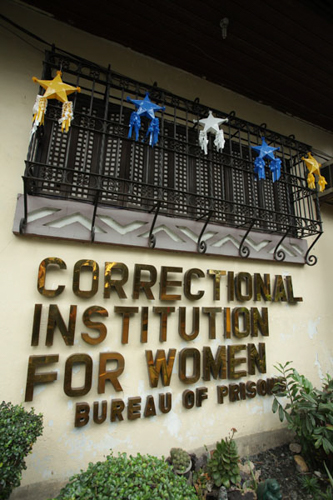 The Correctional Institute for Women in Mandaluyong City has a population of more than 3,000 Persons Deprived of Liberty (PDL). Source: Ang Kaladkarin blog
The Correctional Institute for Women in Mandaluyong City has a population of more than 3,000 Persons Deprived of Liberty (PDL). Source: Ang Kaladkarin blog
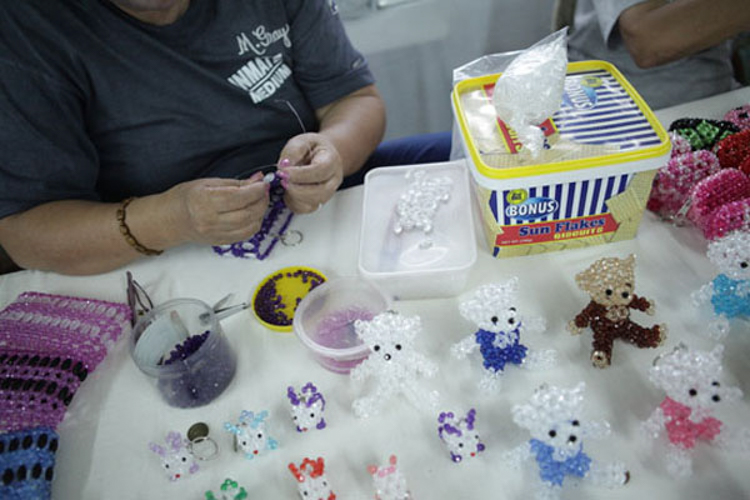 Mandaluyong CIW PDL makes each beadwork delicately, from small ornaments to big bags. Source: Ang Kaladkarin blog
Mandaluyong CIW PDL makes each beadwork delicately, from small ornaments to big bags. Source: Ang Kaladkarin blog
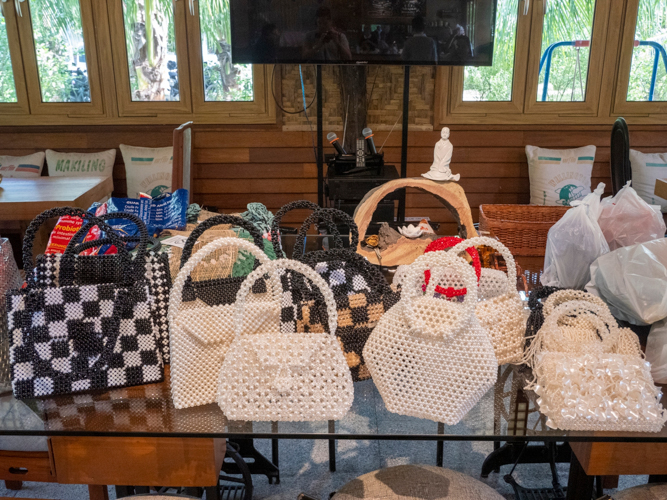 From a classic handbag to spacious tote bags, Mandaluyong CIW PDL can make any imagined bag design possible through beadwork.
From a classic handbag to spacious tote bags, Mandaluyong CIW PDL can make any imagined bag design possible through beadwork.
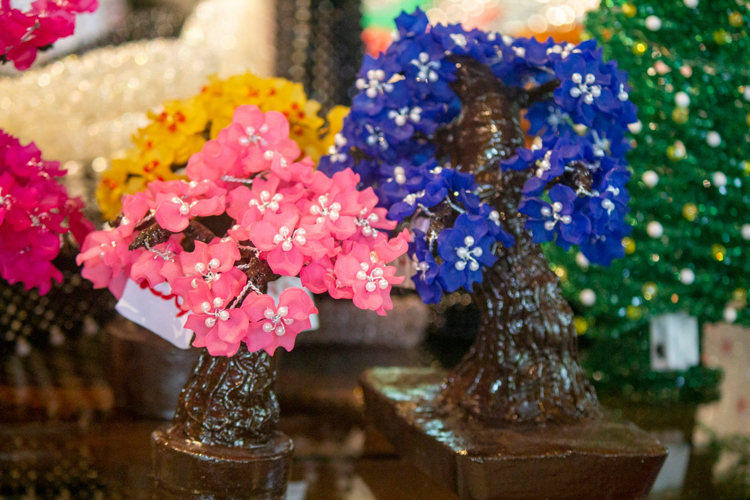 Apart from keychains and bags, they also make wire beaded bonsai trees, a creative decorative piece.
Apart from keychains and bags, they also make wire beaded bonsai trees, a creative decorative piece.
 Flowers, animals, flags, and hearts are only a few of the many designs that Mandaluyong CIW PDL make, as they also create requested designs. Source: Ciw-Mandaluyong Wlp Facebook page
Flowers, animals, flags, and hearts are only a few of the many designs that Mandaluyong CIW PDL make, as they also create requested designs. Source: Ciw-Mandaluyong Wlp Facebook page
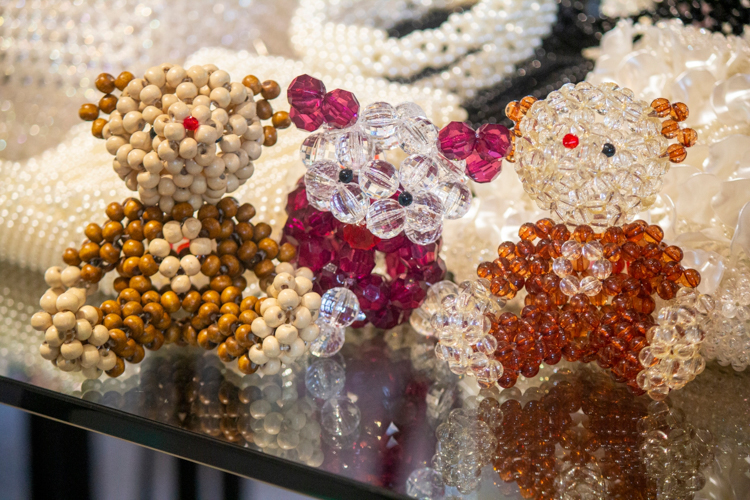 Medium-size ornaments using different kinds of beads (wood, and acrylic) are also available.
Medium-size ornaments using different kinds of beads (wood, and acrylic) are also available.
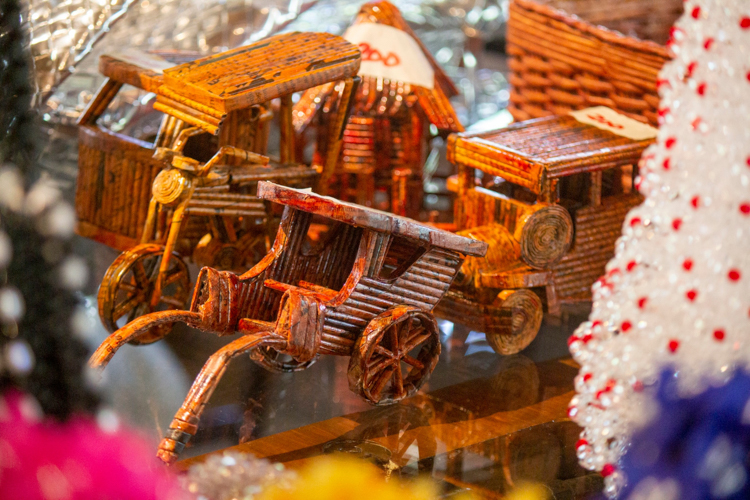 Traditional Filipino ornaments such as mini tricycles and carriages are made and hand-painted.
Traditional Filipino ornaments such as mini tricycles and carriages are made and hand-painted.
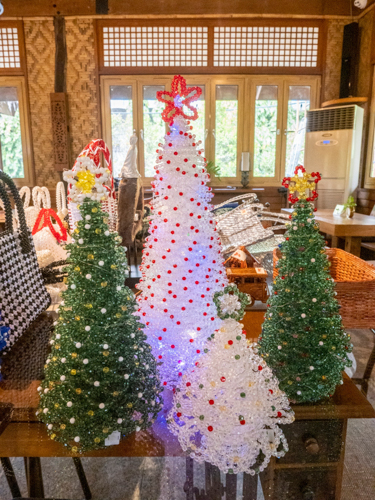 Mandaluyong CIW PDL also challenge their creativity by making artworks such as these beaded Christmas Trees.
Mandaluyong CIW PDL also challenge their creativity by making artworks such as these beaded Christmas Trees.
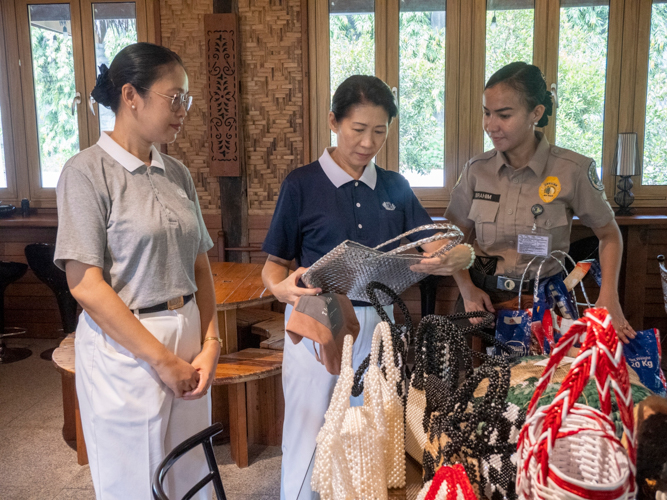 Tzu Chi volunteers and a Mandaluyong CIW officer talk about the handmade upcycled bags.
Tzu Chi volunteers and a Mandaluyong CIW officer talk about the handmade upcycled bags.
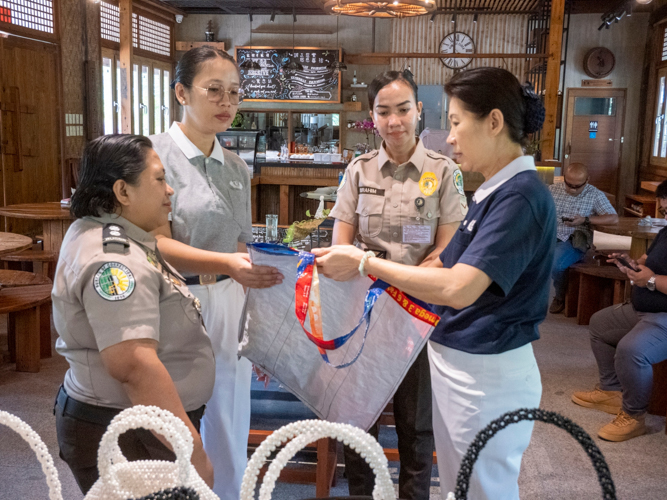 What particularly caught the eyes of the Tzu Chi volunteers were the upcycled sack tote bag, which is an environmentally friendly option to shopping bags.
What particularly caught the eyes of the Tzu Chi volunteers were the upcycled sack tote bag, which is an environmentally friendly option to shopping bags.
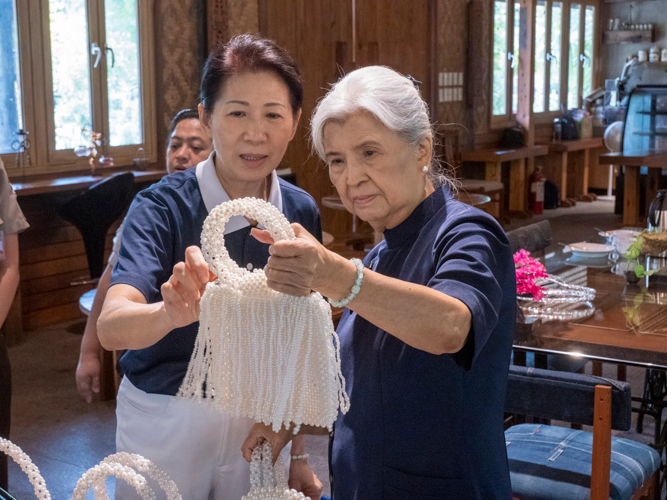 Tzu Chi Philippines’ first CEO Linda Chua (right), along with Deputy CEO Woon Ng, were pleased with the quality of the beadwork in each bag brought by the Mandaluyong CIW.
Tzu Chi Philippines’ first CEO Linda Chua (right), along with Deputy CEO Woon Ng, were pleased with the quality of the beadwork in each bag brought by the Mandaluyong CIW.
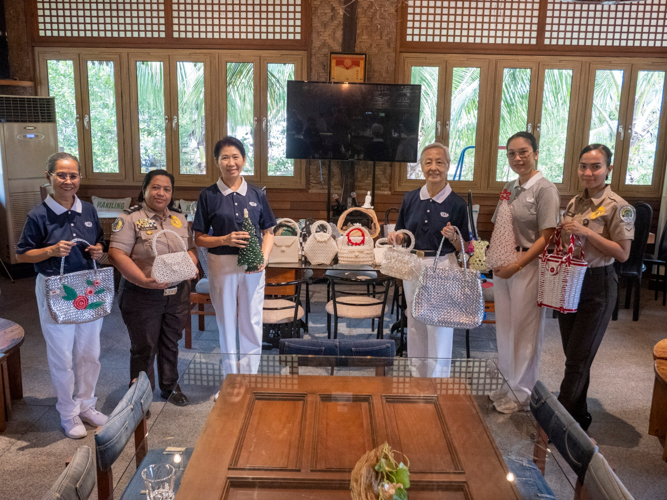 Tzu Chi volunteers, and visiting officers from the Mandaluyong Correctional Institute for Women (CIW) take a group photo with the handmade creations.
Tzu Chi volunteers, and visiting officers from the Mandaluyong Correctional Institute for Women (CIW) take a group photo with the handmade creations.
![During their visit to Tzu Chi Philippines, CO1 Jindra Aina Ibrahim, current staff of the Work and Livelihood Program at Mandaluyong CIW, expressed her amazement at the foundation’s programs such as scholarships, and medical support. “[I hope you] continue to support the people here,” she said.](/assets/news-page/images/12-v22.jpg) During their visit to Tzu Chi Philippines, CO1 Jindra Aina Ibrahim, current staff of the Work and Livelihood Program at Mandaluyong CIW, expressed her amazement at the foundation’s programs such as scholarships, and medical support. “[I hope you] continue to support the people here,” she said.
During their visit to Tzu Chi Philippines, CO1 Jindra Aina Ibrahim, current staff of the Work and Livelihood Program at Mandaluyong CIW, expressed her amazement at the foundation’s programs such as scholarships, and medical support. “[I hope you] continue to support the people here,” she said.





